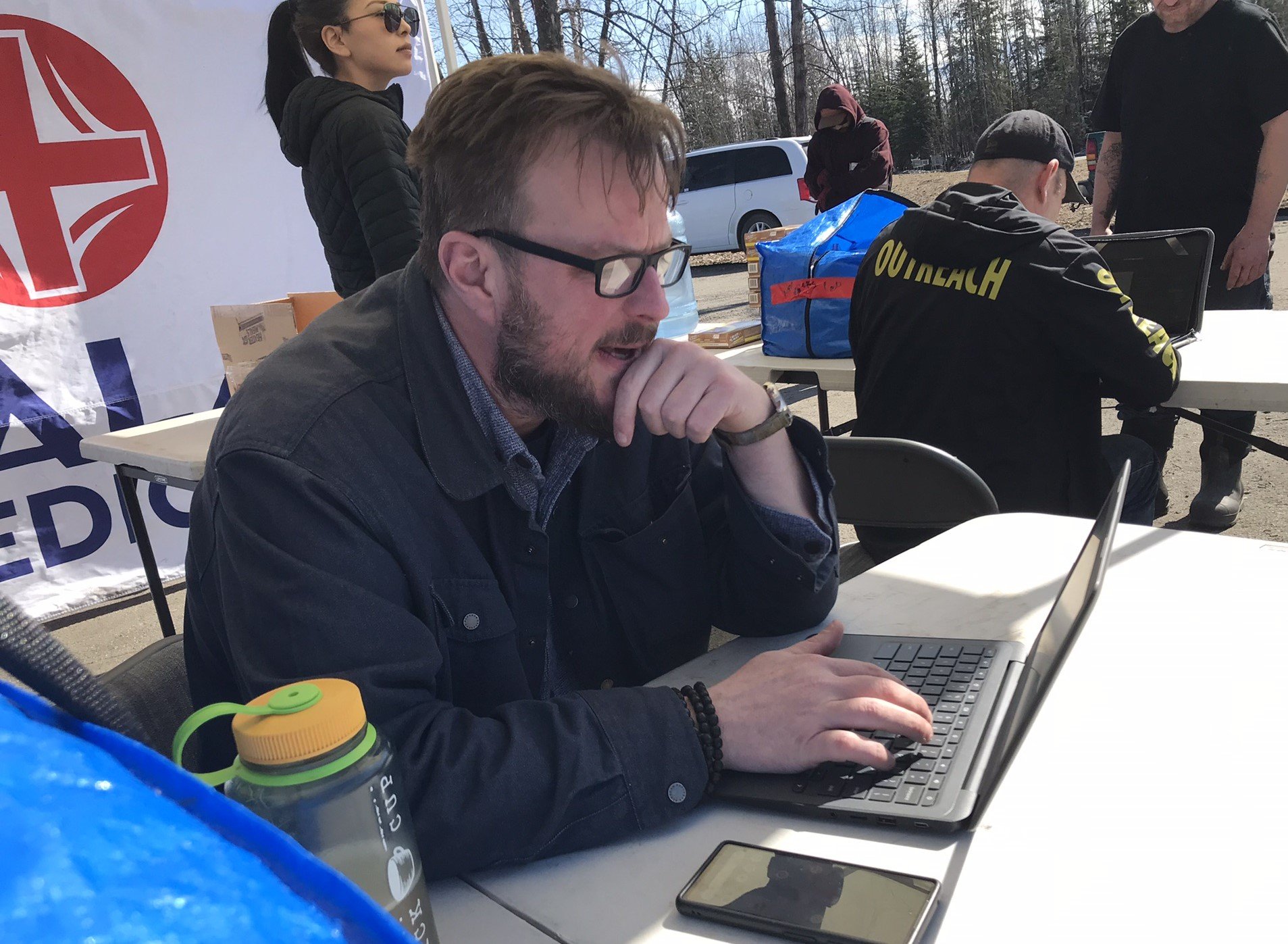Street outreach team connects
By Zach Zears, Coordinated Entry specialist
Zach Zears connects with people living outdoors through street outreach. He is pictured here along with other outreach team members at a recent pop-up event in Anchorage.
My focus at the Anchorage Coalition to End Homelessness is on street outreach, one of the ways we assist our community, housed and unhoused.
People are familiar with our “pop-up” efforts Tuesday and Thursdays, but the rest of the week we go to camps out in the community. We use varied means to decide which camps to visit. Our partnership with the Municipality has allowed us to access the “Camp Reporting Website” (ArcGIS). We visit all the newly reported camps weekly. Of course, we get concerned citizens who call and tell us about places that have people living there, as well as those who come to us looking to improve their situation. We afford them the option of telling us where they are staying and going out to visit them to potentially assist the others around them.
When we go out to visit a camp for the first time, even though it is during regular business hours, it is difficult to predict the state in which we may find the occupants. Think of the door-to-door vacuum salesperson stopping at your door on a Saturday. We spend time building relationships. We usually offer some small token in an attempt to build rapport. We let them know that we are not there to do anything but offer help in whatever way they would like. We offer trash bags, Band-Aids, socks, and basic food items etc. We make a concerted effort to engage them in our Coordinated Entry process of housing need assessments. To be honest this is a “hard sell” the first time we meet someone. These reasons are varied, but I think we can all understand the hesitance of giving someone we don’t know our personal data.
We feel at ACEH feel that housing is a public health response. Outreach views ourselves as the extraverted “greeters” at Walmart's door. We don’t have a magic wand; we can’t necessarily immediately make anyone’s problems go away. But we feel that can provide the bridge between communities and assistance to gain a greater understanding of everyone's needs.

